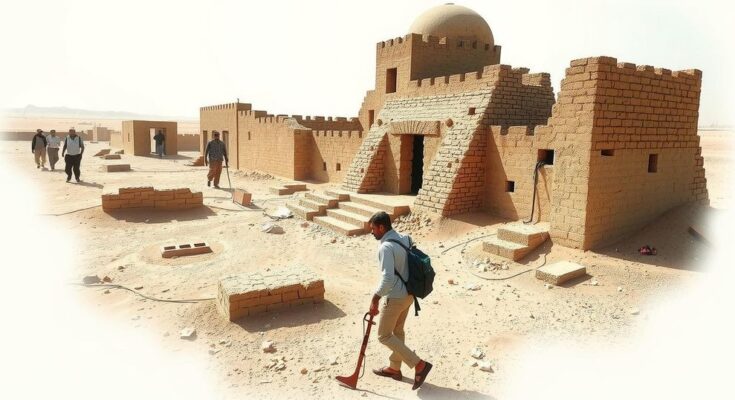The article discusses the recent missile attacks from Yemen’s Houthi movement on Israel, emphasizing their status as a quasi-state rather than merely a militia. It contrasts the Houthis with other pro-Iranian groups in the region, explaining the implications for international relations and regional security. The need to approach the Houthis from a state-centric perspective is highlighted as critical for addressing the ongoing conflict effectively.
The recent missile strikes from Yemen into Israel highlight a dangerous escalation involving the Houthi movement, officially known as Ansar Allah, which has controlled parts of Yemen, including its capital Sanaa, for over a decade. Unlike proxy militias in Iraq or Lebanon, the Houthis operate as a de facto state, enacting laws and declaring military actions in the name of the Republic of Yemen. This reality complicates perceptions of the conflict, as the Houthis present themselves as a legitimate government rather than merely a terrorist organization.
Israel’s response to these attacks included targeting Yemeni facilities linked to missile launches, but addressing the Houthi threat requires recognizing them as a rogue state. The Houthis’ antisemitic rhetoric, coupled with their military capabilities, poses a significant challenge to regional security, especially considering their ties to Iran, which supports their military actions. Distinguishing the Houthis from traditional armed groups is crucial in framing the conflict in terms of international law and security, particularly in light of their recent aggressions.
Additionally, Yemen’s political landscape is further complicated by the presence of a rival government in the south, which, despite lacking control over Sanaa, is internationally recognized. Such complexities resemble other global situations where legitimacy and control are contested, like recent events in Afghanistan. The Houthis’ claims to statehood necessitate a reevaluation of international responses, which could lead to legitimizing their role in the conflict if they declare an unprovoked war against Israel. Analyzing the Houthis through the lens of statehood rather than terrorism may catalyze a shift toward addressing their actions through relevant diplomatic channels, challenging Iran’s strategy of proxy warfare in the region.
The article examines the evolving conflict involving the Houthi movement in Yemen, particularly in relation to missile attacks targeting Israel. The Houthis, broadly recognized as a militia operating within Yemen, are portrayed as representing a self-declared state with governance functions. Their ideological stance and military actions raise questions about how they should be perceived on the international stage compared to other militia groups supported by Iran. This context is crucial for understanding the implications of their aggressive actions towards Israel and international shipping.
In conclusion, the Houthi movement’s status as a quasi-state complicates international perceptions of their actions and requires a reassessment of how they are treated in diplomatic and legal frameworks. Recognizing their self-identification as a state in conflict with Israel may open new avenues for addressing the challenges posed by their missile attacks and aggressive rhetoric. As the situation develops, it will be imperative for international actors to navigate the complexities surrounding the Houthis to ensure regional stability and security.
Original Source: www.jpost.com




